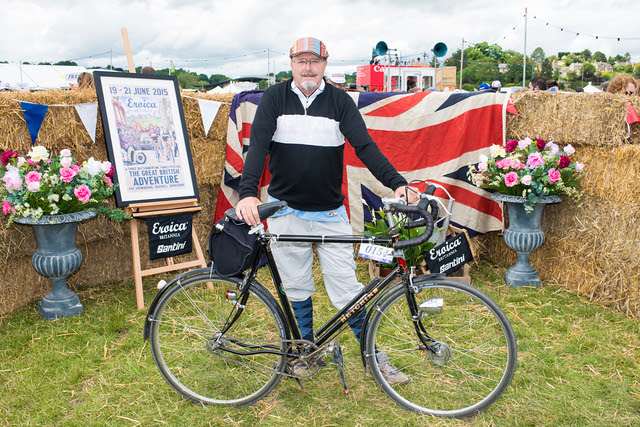HE Translations | Herb@HETranslations.uk | Call / WhatsApp: +44 (0) 7808 967196
| Cookie | Duration | Description |
|---|---|---|
| cookielawinfo-checkbox-advertisement | 1 year | Set by the GDPR Cookie Consent plugin, this cookie records the user consent for the cookies in the "Advertisement" category. |
| cookielawinfo-checkbox-analytics | 11 months | This cookie is set by GDPR Cookie Consent plugin. The cookie is used to store the user consent for the cookies in the category "Analytics". |
| cookielawinfo-checkbox-functional | 11 months | The cookie is set by GDPR cookie consent to record the user consent for the cookies in the category "Functional". |
| cookielawinfo-checkbox-necessary | 11 months | This cookie is set by GDPR Cookie Consent plugin. The cookies is used to store the user consent for the cookies in the category "Necessary". |
| cookielawinfo-checkbox-others | 11 months | This cookie is set by GDPR Cookie Consent plugin. The cookie is used to store the user consent for the cookies in the category "Other. |
| cookielawinfo-checkbox-performance | 11 months | This cookie is set by GDPR Cookie Consent plugin. The cookie is used to store the user consent for the cookies in the category "Performance". |
| CookieLawInfoConsent | 1 year | CookieYes sets this cookie to record the default button state of the corresponding category and the status of CCPA. It works only in coordination with the primary cookie. |
| PHPSESSID | session | This cookie is native to PHP applications. The cookie stores and identifies a user's unique session ID to manage user sessions on the website. The cookie is a session cookie and will be deleted when all the browser windows are closed. |
| viewed_cookie_policy | 11 months | The cookie is set by the GDPR Cookie Consent plugin and is used to store whether or not user has consented to the use of cookies. It does not store any personal data. |
| Cookie | Duration | Description |
|---|---|---|
| _ga | 1 year 1 month 4 days | Google Analytics sets this cookie to calculate visitor, session and campaign data and track site usage for the site's analytics report. The cookie stores information anonymously and assigns a randomly generated number to recognise unique visitors. |
| _ga_* | 1 year 1 month 4 days | Google Analytics sets this cookie to store and count page views. |
| CONSENT | 2 years | YouTube sets this cookie via embedded YouTube videos and registers anonymous statistical data. |
| Cookie | Duration | Description |
|---|---|---|
| guest_id | 1 year 1 month | Twitter sets this cookie to identify and track the website visitor. It registers if a user is signed in to the Twitter platform and collects information about ad preferences. |
| VISITOR_INFO1_LIVE | 6 months | YouTube sets this cookie to measure bandwidth, determining whether the user gets the new or old player interface. |
| YSC | session | Youtube sets this cookie to track the views of embedded videos on Youtube pages. |
| yt-remote-connected-devices | never | YouTube sets this cookie to store the user's video preferences using embedded YouTube videos. |
| yt-remote-device-id | never | YouTube sets this cookie to store the user's video preferences using embedded YouTube videos. |
| Cookie | Duration | Description |
|---|---|---|
| VISITOR_PRIVACY_METADATA | 6 months | Description is currently not available. |

Germany’s Mittelstand: standstill or foundation of the Industrie 4.0 future?
/in Language, News, Technical /by HE TranslationsThe German economy owes much of its success to the country’s Mittelstand, a uniquely German term used to refer to Germany’s highly developed and export-oriented mid-sized business sector. Mittelstand is roughly translated into English as SME or Small and Medium Enterprise sector, but the Mittelstand is characterised by more than just the simple number of employees or the size of the annual turnover. Due to its ethos and importance, and focus on manufacturing, the Mittelstand has been the subject of considerable study and discussion, as well as concerns for its future when facing the challenges of technological change and international competition. Clearly it can’t afford to stand still if the German Wirtschaftswunder is to continue, so what is the Mittelstand and where is it going? Can small business and manufacturing survive in a world of globalised giants and the feverish flow of investor funds into speculative startups?Continue reading full article…
Are EU elections a betrayal? Dance of the Dolchstossers
/in Language, News /by HE TranslationsAs the UK faces EU elections some promised to end, Germany offers us the lesson of the Dolchstosslegende, a myth much used to paint defeat as the work of backstabbing traitors, rather than failed leaders. After First World War defeat in 1918, Germany’s militarists promoted the Dolchstosslegende, or Stab-In-The-Back Myth, contrafactually claiming that they could and would have won the war if weak-kneed pacifist politicians had not undermined them and stabbed them in the back, robbing the country of a great victory.
Continue reading full article…
Battery Storage Guide now on sale
/in News, Technical, Translation /by HE TranslationsA topical new energy study is out this month and charging ahead with the publication of The Definitive Guide to Commercial and Industrial Battery Storage Systems. This thorough new report from German energy consultancy denersol, in cooperation with publishers DGS Franken, has been translated by the experts at HE Translations.
HE Translations are specialists in the Energiewende, the ongoing energy transition to sustainable energy, and are offering a 20% discount off the purchase price to early bird buyers in the month of May only.Continue reading full article…
Translating the Guide to Commercial and Industrial Battery Storage
/in News, Technical, Translation /by HE TranslationsThe transition to sustainable energy sources, known in German as the Energiewende, faces a significant challenge when energy from renewables must be stored outside the active generation period to provide a continuous power supply. So what exactly are energy storage systems, and where do we find them, and how do we use them?
Continue reading full article…
What is Energiewende
/in Language, News /by HE TranslationsWhat is Energiewende and where does it come from?
English is getting a new word as energiewende creeps in and cleans up. No, not energy for a Wendy house, but the turning point and transition to renewable energy without the cost of nuclear. The most concise word for this today comes from German, where the national energy policy of Energiewende is leading the way towards… read more…
Imports are making English rich, and HE Translations are assembling an online treasure-trove explaining words that English has imported from German. Technology, sustainability, psychology and even food are fueling our appetite for new terms, and Germany is serving them up freely. Lost for words? Try some
new ones and go with the zeitgeist!
Top tips for a successful technical translation
/in Language, Technical, Translation /by HE TranslationsMastering this technical task calls for specialist understanding and experience, as well as an ability to be clear and unambiguous. And of course a well-written and clear original text is the best starting point, so here we offer a few tips from our long experience to get you going in the right direction. Just as you would not print blurred instructions just to save on ink, you wouldn’t want your meaning to be lost in translation.
The five Es for excellence in translation:
Continue reading full article…
A journey in language – cycling, TV, and then a degree
/in Language, Translation /by HE TranslationsHow social media partner Mike Gayler cycled into an Open University French degree
By Mike Gayler
I shared this story with an email contact recently and thought it might be interesting for readers of the HE Translations blog to know a little about my journey in language. It’s an unconventional tale, but I hope that you find it interesting, and, perhaps a little motivating if you’ve ‘failed’ in a skill at a younger age. At school I had a persistent French teacher. I was an enthusiastic but clueless language student, and I failed French ‘O’ levels in both 1971 and twice in 1972!
I started work for the National Health Service in the autumn of 1972 and the following summer I took my bicycle on the ferry and cycled through France for a fortnight. Being on my own, and staying in Youth Hostels it was very much a case of “speak French or starve”! I did survive, and the following year cycled round the coast of Brittany. From that point on I was aware that I could ‘get by in French’. And ‘get by’ I did – we took family holidays to France, and I took part in many cycle-tourist events in France and Belgium where my rudimentary language skills came in very handy.
Continue reading full article…
Circa – circling around the abbreviation of an approximation in translation
/in Language, Translation /by HE TranslationsGerman technical texts tend to be liberally littered with the abbreviation “ca.” to indicate that what follows should be read as an approximation. Usually our preference has been to render this Latin term for “about” or “around” as “approx.” when translating into English. This can, however, be awkward, as that may appear too long in tables and other contexts. Is there an alternative? If we seek an expert opinion, The New Oxford Style Manual has this to say on the matter:

Continue reading full article…
Alien immission impacts English
/in Language, Technical, Translation /by HE TranslationsOr: Restoring the efficiency of a lost Latin term
A report by TastyWebDesign.com
Following yet another long and interesting discussion on the term ‘immission‘ in a translator network, we decided to give up (at least for the time being) campaigning for its reintroduction into the English language, although we still think it would be entirely justified, not least based on the fact that the term is listed in the Oxford English Dictionary. Anyway, we intend to use ‘environmental impact’ henceforth, although we reserve the right to use other solutions (e.g. ‘exposure’ or indeed the apparently frowned-upon term itself), depending on the context or situation.
Why is this word so worth using? The term concisely describes the process that necessarily occurs in a technical context when we translate the eventual destination, absorption, or impact of an emission. When a source emits an emission, and after its transmission, a recipient receives an immission, for example sound, light or heat. As an emission is something sent out, so an immission is something sent in.Continue reading full article…
Ersatzkaffee – can drinking substitutes win the game?
/in Humour, Language, Technical, Translation /by HE TranslationsA report by TastyWebDesign.com
With coffee being so wildly popular these days, is a coffee substitute a winner or a loser? Anyone who has watched enough World Cup matches has seen a substitute come on the field and decide the match with fresh energy, or else disappoint when they can’t do what the missing star player did. A coffee bean isn’t a football so why even talk of substitutes, why not some other better word? And why do people drink coffee anyway?
Why coffee?
The Stimulant Effect
People enjoy the rich roasted taste of coffee and many cherish the stimulating effect of the caffeine it contains, a drug which zaps away fatigue and sleepiness and speeds things up. Regular coffee drinking can lead to caffeine addiction, meaning without this stimulant at regular intervals the coffee lover feels tired, with poor concentration, irritability, and even headaches – which are quickly cured by a fresh cup. Coffee breaks become not just a pleasurable social ritual but a required recharge, part of the grind of daily life. So why would anyone want or need to drink something else instead? To replace a drink or a drug, or both? Or just to respond to the endless cycle of headlines about coffee being good or bad for you?Continue reading full article…